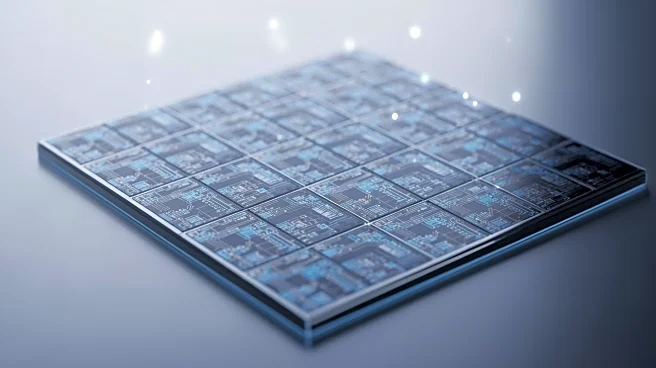What's Happening?
The Chinese Ministry of Commerce has decided to ease export restrictions on Nexperia products, specifically civilian-use chips, by removing the requirement for a special export license. This decision has allowed the first shipments of Nexperia chips to begin
flowing to Europe, providing short-term relief to the European car industry, which has been under pressure due to supply chain disruptions. German auto suppliers, including ZF Friedrichshafen, have confirmed successful test shipments to locations in the European Union, the United Kingdom, and North America. Despite this progress, supply chain risks persist as Beijing and The Hague have yet to finalize a deal regarding Nexperia's future, and US-China tensions continue to loom.
Why It's Important?
The easing of export restrictions on Nexperia chips is significant for the European auto industry, which has been struggling with supply chain issues. The availability of these chips is crucial for manufacturing processes, and the relief provided by the Chinese Ministry of Commerce's decision could stabilize production and reduce delays. However, the ongoing negotiations between Beijing and The Hague, along with US-China tensions, mean that the situation remains precarious. The European auto industry stands to benefit from improved chip supply, but must remain vigilant in sourcing alternative products to ensure long-term stability.
What's Next?
The German supplier ZF Friedrichshafen is actively working with Nexperia China to secure long-term supply arrangements by organizing shipments of additional batches of components. The company is also exploring alternative products to further stabilize its supply chain. As negotiations between Beijing and The Hague continue, stakeholders in the European auto industry will be closely monitoring developments to assess potential impacts on their operations.


















